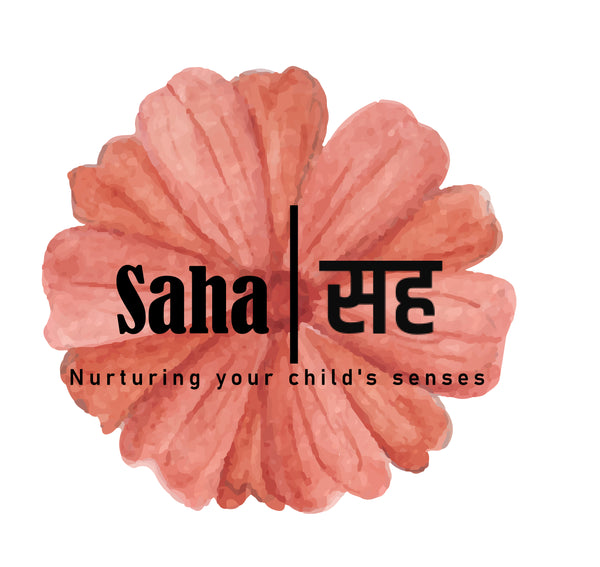
The Fixed Mindset Trap: Why Positive Labeling Can Be Detrimental to a Child's Development
Share
We are used to praise little children, believing that these praises will help them believe in themselves more and achieve their fullest potential. What if we told you that is not quite true! Labeling children, even with seemingly positive descriptors like smart or gifted, is a common practice among parents and educators aiming to encourage and motivate. However, research indicates that such labeling can inadvertently lead to the development of a fixed mindset, potentially hindering a child's growth and adaptability. This article delves into the implications of positive labeling, explores the fixed mindset trap, and offers strategies to foster a more beneficial growth mindset in children.
Understanding the Fixed Mindset
Psychologist Carol Dweck introduced the concepts of fixed and growth mindsets. A fixed mindset is the belief that abilities and intelligence are static traits, unchangeable over time. Conversely, a growth mindset holds that intelligence and abilities can be developed through effort, learning, and perseverance. Children with a fixed mindset may avoid challenges, fearing failure might expose a lack of inherent ability. They might also view effort as fruitless if they believe their capabilities are predetermined.
The Paradox of Positive Labeling
While labeling a child as 'smart' or 'talented' seems encouraging, it can have unintended consequences:
- Pressure to Maintain the Label: Children may feel compelled to consistently exhibit behaviors that align with their labels, leading to stress and anxiety. They might avoid tasks where success isn't guaranteed to protect their "smart" identity.
- Fear of Failure: Labeled children might equate failure with a loss of identity, making them hesitant to take on new challenges. They may prefer tasks that affirm their label, avoiding situations where they might struggle.
- Reduced Resilience: When setbacks occur, these children might lack the coping mechanisms to persevere, attributing difficulties to unchangeable shortcomings rather than viewing them as opportunities for growth.
The Impact on Learning and Development
Positive labels can inadvertently limit a child's learning potential:
- Avoidance of Challenges: To maintain their "smart" status, children might choose easier tasks, missing out on valuable learning experiences that come from tackling more difficult problems.
- Decreased Motivation: Relying on innate ability rather than effort can diminish a child's intrinsic motivation to learn, as they may believe success should come effortlessly.
- Impact on Self-Esteem: When faced with challenges that contradict their label, children might experience a decline in self-esteem, questioning their abilities and self-worth.
Strategies to Foster a Growth Mindset
To counteract the fixed mindset trap, consider the following approaches:
- Emphasize Effort Over Ability: Praise the process—focus on the child's effort, strategies, and perseverance rather than innate talent. For example, say, "I'm proud of how hard you worked on this project," instead of, "You're so smart."
- Encourage Embracing Challenges: Normalize struggle as a part of learning. Encourage children to take on tasks that push their abilities, reinforcing that effort leads to improvement.
- Model a Growth Mindset: Demonstrate resilience and a love for learning in your own life. Share experiences where you've faced challenges, put in effort, and achieved growth.
- Provide Constructive Feedback: Offer feedback that focuses on strategies and effort rather than personal attributes. Highlight areas for improvement and discuss ways to overcome obstacles.
- Avoid Comparisons: Refrain from comparing children to their peers. Instead, focus on individual progress and personal bests to foster internal motivation.
Conclusion
While the intention behind positive labeling is often to boost a child's confidence and self-esteem, it can inadvertently lead to the development of a fixed mindset, limiting their willingness to embrace challenges and grow. By shifting our focus from innate ability to effort and perseverance, we can cultivate a growth mindset in children, empowering them to reach their full potential.
References
- Dweck, C. S. (n.d.). Carol Dweck. Retrieved March 28, 2025, from https://en.wikipedia.org/wiki/Carol_Dweck
- Shortform. (n.d.). Positive Labels: Why They're Actually Hurting Your Kids. Retrieved March 28, 2025, from https://shortform.com/blog/positive-labels/
- Hoad, K. (n.d.). Negative Effects Of Labelling. Retrieved March 28, 2025, from https://www.becomingaware.co.uk/post/negative-effects-of-labelling
- Wikipedia contributors. (n.d.). Goal orientation. Retrieved March 28, 2025, from https://en.wikipedia.org/wiki/Goal_orientation
- Wikipedia contributors. (n.d.). Implicit theories of intelligence. Retrieved March 28, 2025, from https://en.wikipedia.org/wiki/Implicit_theories_of_intelligence
